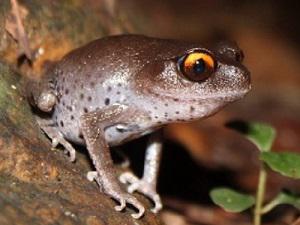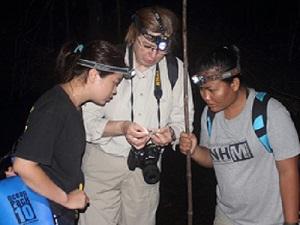Sansareeya Wangkulangkul
The project will study anurans in peninsular Thailand and will increase in-country capacity in understanding amphibian diversity (taxonomy) and conservation (particularly the recognition of disease).

Recent studies (eg. Royal Society London, 2009; Global Biodiversity Outlook 3, 2010) suggest that about 56% of currently recognised amphibian species in Southeast Asia are either ‘threatened’ or ‘data deficient’. Accelerating deforestation rates, climatic change, and high harvesting pressures are leading to an acute risk of extinctions.

There is an urgent need for the:
• identification and protection of habitats with distinctive regional faunas
• detection of cryptic species with limited geographical ranges
• collection of basic biological and ecological information
• evaluation of the impact of the food, medicine, and pet trade on anuran populations
• monitoring for the presence of disease
This project seeks to address the following three main constraints for amphibian conservation in peninsular Thailand (and Southeast Asia generally).
First, it aims to increase capacity in amphibian research at the Prince of Songkla University (PSU). The Biology Department is already recognised as a ‘Centre of Excellence for Biodiversity in Peninsular Thailand’. This project, following others in mammals and birds, will help develop a team of young, active amphibian researchers, who collaborate nationally and internationally and who will be able to provide substantive, scientific information on which to base anuran conservation initiatives.
Second, it aims to further develop links between the academic and conservation communities. Currently there is a good relationship between the Tarutao National Park’s authority and PSU. This project seeks to enhance and focus this relationship most particularly by training authority staff in the identification and conservation of anurans. This project will then act as a role model for similar projects elsewhere in Thailand and Southeast Asia.
Third, the project will seek to raise the profile of anuran research and conservation in Thailand through targeted publicity (TV and in other media) based on the discovery of new anuran taxa on the island.